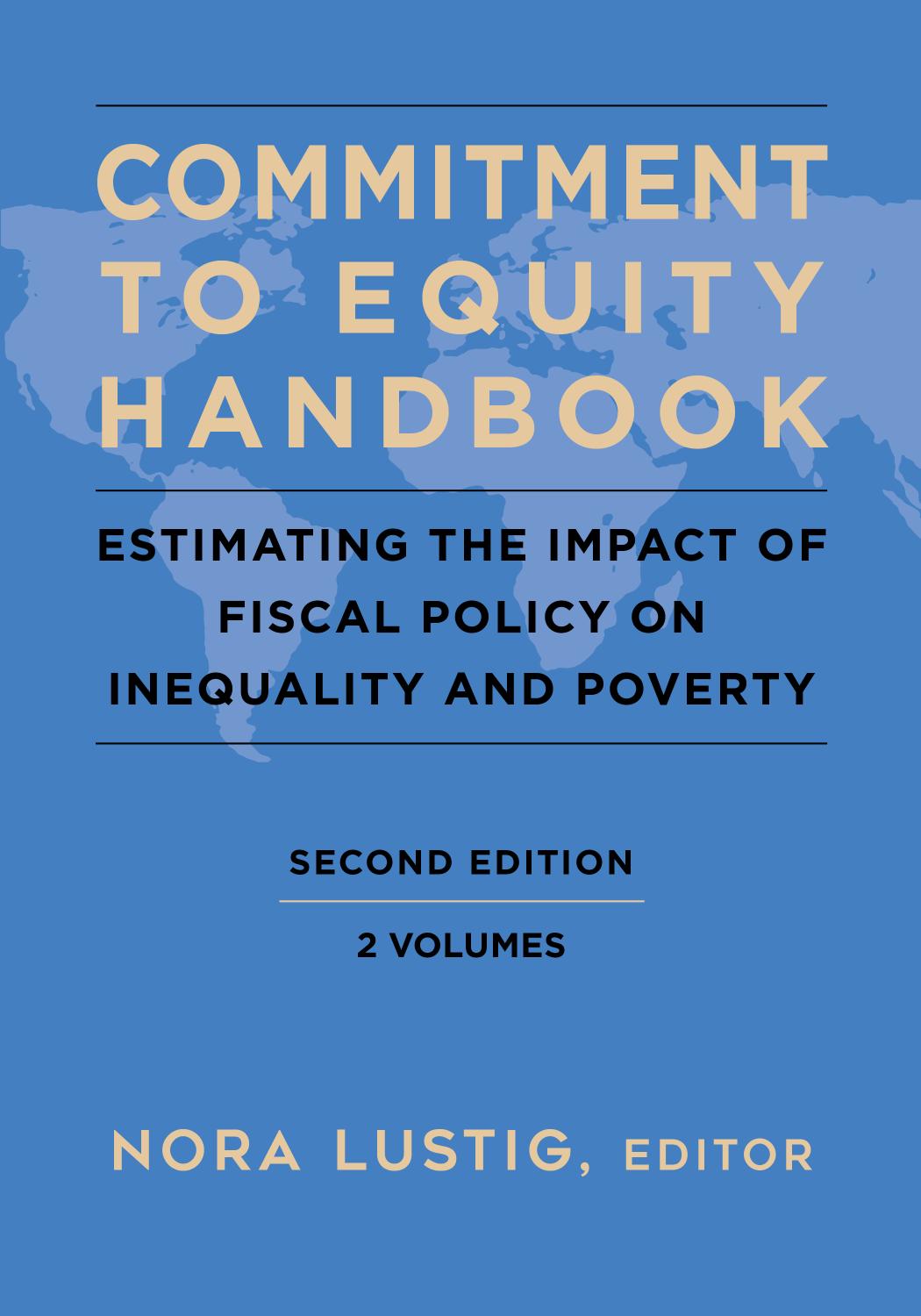Full PDF versions can be downloaded below at no cost:
Edited by Nora Lustig, the Commitment to Equity Handbook: Estimating the Impact of Fiscal Policy on Inequality and Poverty (Brookings Institution Press and CEQ Institute-Tulane University, 2nd edition, 2022) is a unique manual on the theory and practical methods to estimate the impact of taxation and public spending on inequality and poverty. In addition, the second edition covers frontier topics such as alternative approaches to measure the redistributive effect of education, health, and infrastructure spending. Policymakers, social planners, and economists are provided with a step-by-step guide to applying fiscal incidence analysis, illustrated by country studies.
The 2nd edition of the Handbook has two volumes. Volume 1 is comprised of Part I, Methodology, describes what a CEQ Assessment© is and presents the theoretical underpinnings of fiscal incidence analysis and the indicators used to assess the distributive impact and effectiveness of fiscal policy. Part II, Implementation, presents the methodology on how taxes, subsidies, and social spending should be allocated. It includes a step-by step guide to completing the CEQ Master Workbook©, a multi-sheet Excel file that houses detailed information on the country’s fiscal system and the results used as inputs for policy discussions, academic papers, and policy reports. Part III, “Applications,” presents applications of the CEQ framework to low- and middle-income countries and includes simulations of policy reforms. In this 2nd edition, chapters 1, 6, and 8 have been significantly updated and two new country studies have been added to Part III. Parts IV (updated), V (new), and VI (new) are available online only. Part IV contains the CEQ Assessment’s main tools. Part V includes the databases housed in the CEQ Data Center on Fiscal Redistribution. Part VI contains the CEQ Institute’s microsimulation tools.
Volume 2 (new) includes a collection of chapters whose purpose is to expand the knowledge and methodological frontiers to sharpen even further the analysis of fiscal policy’s redistributive impact. Topics include: alternative approaches to value in-kind education and health services; alternative methods to evaluate spending on infrastructure; corporate taxes and taxation on capital incomes; inter-temporal fiscal incidence and the redistributive consequences of social insurance pensions; fiscal redistribution, macroeconomic stability and growth; and, the political economy of fiscal redistribution.


